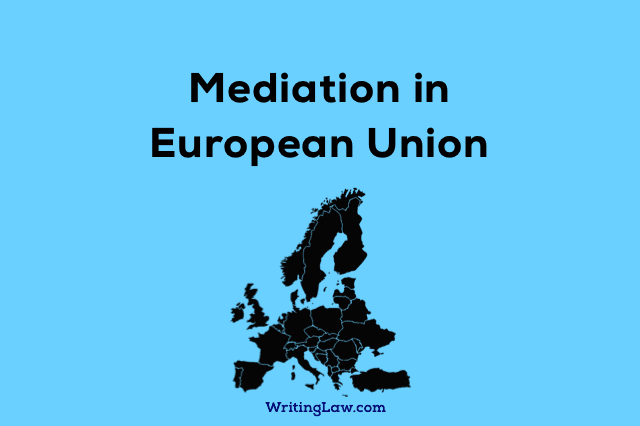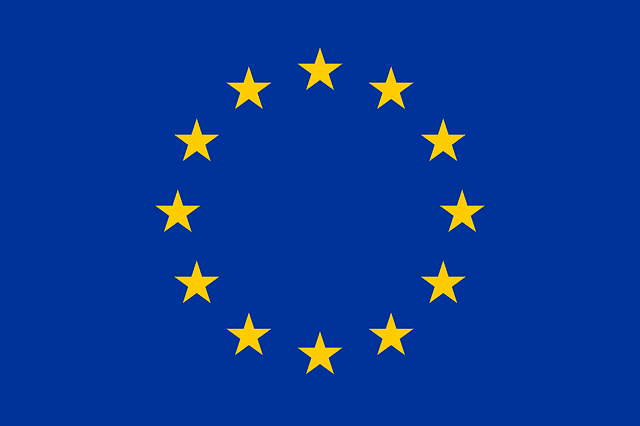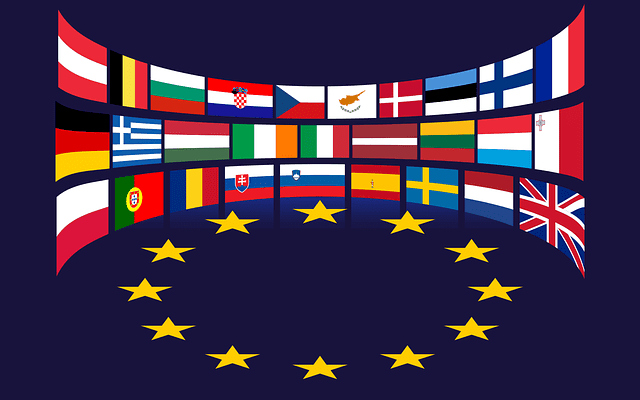
Mediation in the European Union
In the European Union “Directive 2008/52/EC of the European Parliament and of the Council on Certain Aspects of Mediation in Civil and Commercial Matters” (also known as Mediation Directive or just Directive) is framed applying to all cross border disputes in which one of the parties is domiciled in a Member State on the date on which they agree to use mediation or on the date mediation was ordered by the court.
The main purpose of this Directive is to promote the use of Mediation in case of disputes.
The Preamble of the Directive 2008/52/EC elucidates the benefits of mediation:
“Mediation can provide a cost-effective and quick extrajudicial resolution of disputes in civil and commercial matters through processes tailored to the needs of the parties. Agreements resulting from mediation are more likely to be complied with voluntarily and are more likely to preserve an amicable and sustainable relationship between the parties. These benefits become even more pronounced in situations displaying cross-border elements.”
For this, the Directive contains five substantive rules:
1. It compels each Member State to promote the training of mediators and to ensure high quality of mediation.
2. It authorizes every judge to direct the parties to a dispute to take recourse to mediation first if she/he considers it suitable given the circumstances of the case.
3. It states that agreements resulting from mediation can be made enforceable if parties have consensus.
4. It promotes confidentiality in mediation. If parties to mediation enter into a future dispute, in that scenario, Mediator cannot give any evidence in court regarding that mediation proceedings.
5. It ensures that the parties are not prevented from going to court due to the expiry of limitation periods during the mediation process. It provides that the limitation period excludes the time spent during mediation process.
The Mediation Directive dated 21 May 2008 is in force from 13 June 2008 and requires the European Member States (except Denmark) to implement the necessary laws, regulations, and administrative provisions by 21 May 2011 at the latest.
The Mediation Directive contains the following articles:
1. Article 1-3 deals with Objective, Scope, and Application of the Directive;
2. Article 4 deals with Quality of Mediation;
3. Article 5 deals with Recourse to Mediation;
4. Article 6 and 7 deals with Enforceability of Agreements and Confidentiality of Mediation;
5. Article 8 deals with the Effect of Mediation on Limitation and Prescription periods;
6. Article 9 and 10 deal with Information on Mediation.
The Articles of the Mediation Directive reflect the varying stages of development of Mediation in the Member States. Some Articles are mandatory to be transposed into the National laws by the Member States, such as Article-6 on the Enforceability of Settlement Agreements or Article-7 on Confidentiality.
Other Articles are non-obligatory and are left at the discretion of the Member States whether to implement them or not. These articles include Article-4 on ensuring the Quality of Mediation and Article-5 on the Relationship between Court proceedings and Mediation.
Regulatory approaches adopted by the Member States are different, which leads to some states having strong self-regulation in terms of mediation and some States taking little interest in regulating mediation as an ADR mechanism.

Whether Mediation is Mandatory in Member States?
Article 5 of the Mediation Directive states that Mediation is a voluntary process, and it is not compulsory for courts to ask parties to use Mediation for settlement of disputes. The Directive gives a right to the judge to invite parties to settle their dispute by using Mediation. It also provides Judge a right to ask parties to attend informative sessions on the use of Mediation.
The Italian case of Rosalba Alassini has reiterated the view that mandatory Mediation is not in violation of European Union law. The above case was dragged to the European Courts of Justice, as one of the contentions was that Mediation on mandatory basis might offend the Article 6 of the European Convention on Human Rights that sets out “right to access to justice as a human right.”
The Bench considered that a requirement to use Mediation (as an ADR) before instituting consumer complaint before the court was permitted because even if a fundamental right is restricted, ADR is cost-effective, quicker and gives satisfactory long term solutions.
Most of the jurisdictions are promoting voluntary Mediation as an alternative to the litigation process because it lessens the burden upon the courts. Compelling parties to go for Mediation is of no harm; rather, it only helps the parties to resolve their disputes in a less expensive way.

Issues Pertaining to European Union Directive on Mediation
1. Qualification And Training of Mediators
At present, the Directive is silent on credentialing the mediators. The qualification standards or training of mediators is not even discussed in the European Union Directive. A group of stakeholders has developed the European code of conduct for mediators with the assistance of the European Commission.
The Twenty-one Member States require the development of and adherence to codes of conduct, whereas, in the other Member States, providers of mediation set their own codes of ethics.
The code sets out a number of principles that can be followed voluntarily at the discretion of the mediators or the organization providing mediation services, under their own responsibility. But there are no such mandatory standards regulating mediators. Presently anyone can be a mediator as there is no level of qualification standards for appointing a person as mediator.
2. Lack of Mediation Awareness
European Union has no strategy to create awareness among the Member States regarding Mediation Culture. Many Member States have little or no interest in Mediation due to the lack of knowledge of the benefits relating to Mediation as a dispute resolution mechanism.
In the various Member States, such as Belgium, Bulgaria, Czech Republic, France, Ireland, Italy, etc. the low level of awareness regarding Mediation and the lack of information to potential parties to judicial proceedings negatively affects the efficiency of Mediation services. Limited investments in promoting education and awareness activities related to Mediation resulted in less efficiency of Mediation.
3. Lack of Proper Implementation
Implementation of this Mediation Directive has significantly differed among the Member States, depending on the prior existence or not of National Mediation systems.
Implementation of the Directive by the Member States is not in a homogeneous manner and includes adopting of different implementation models and regulatory frameworks by different States. Some Member States have opted for a relatively literal implementation of the provisions of the Directive, while others for an in-depth revision of alternative ways to resolve disputes (such as Italy, which uses Mediation for dispute resolution the most).
The difficulties which have emerged at the transposition stage of the directive largely reflect the differences in legal culture across the national legal systems. The Directive applies to civil and commercial matters, including family and labour disputes. However, some Member States have not included family and labour matters.
All Member States provide for the Enforceability of Mediation Settlement Agreements, whereas in some Member States, the consent of all parties to the dispute is not obligatory for the Mediation Settlement Agreement to be made enforceable.

Comparative Analysis between India and European Union
1. Laws Governing Mediation
INDIA: Arbitration & Conciliation Act, 1996 and Section 89 of Code Of Civil Procedure, 1908.
EUROPEAN UNION: Directive 2008/52/EC of the European parliament.
2. Applicability
INDIA: Applicable all over India
EUROPEAN UNION: Applicable on cross border disputes as well as domestic disputes.
3. Kind of Disputes
INDIA: Applicable on civil, commercial, family, and labour disputes.
EUROPEAN UNION: Directive applies to civil and commercial matters only.
4. Confidentiality
INDIA: Very High level of confidentiality.
EUROPEAN UNION: Article 7(1) deals with confidentiality and it is the responsibility of mediator to ensure confidentiality.
Here is the same information in tabular form.

Conclusion and Recommendations
The Mediation Directive framed by the European Commission is no doubt a great initiative to promote and encourage Mediation as an ADR mechanism in the European Union and has brought significant changes in the regulatory framework of the Member States, but it also involves a lot of flaws which shows minimum use of Mediation as a dispute resolution mechanism in the Member States.
The implementation of the Mediation Directive by the Member States has been irregular, and a lot of difficulties have occurred at the transposition stage due to the dynamic legal culture of Member States. The low level of awareness of Mediation and the functioning of the quality control mechanisms has lead to the failure of the Mediation Directive.
Member States should encourage and promote the use of Mediation through various means like running educational programmes on Mediation and including a module on ADR in the curriculum of certain studies, inviting more parties to go for Mediation before litigation, setting a mandatory qualification standard for mediators at the national level and ensuring Enforceability of Settlement Agreements without necessarily requiring the consent of the parties.
Read Next: 7 Important Types of Mediation Briefly Defined
References:
- e-justice.europa.eu
- e-justice.europa.eu
- eur-lex.europa.eu
- europeanjournalofscientificresearch.com
- euromed-justice.eu
- What Are the Rights of Private Sector Employees in India? - 4th April 2023
- Is an Unmarried Woman Legally Allowed To Have an Abortion in India? - 27th June 2022
- What Are the Two Main Schools and Four Sub-Schools Under Hindu Law? - 27th April 2022








Informative ❤️
Glad you found it helpful.